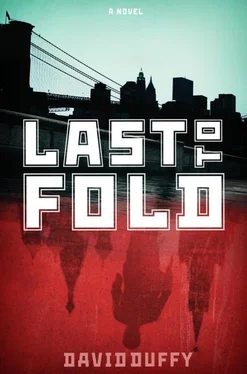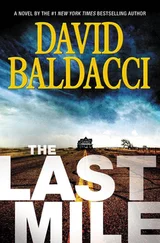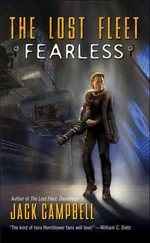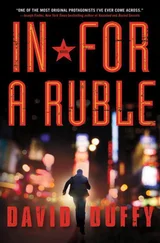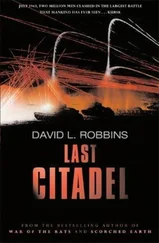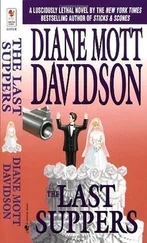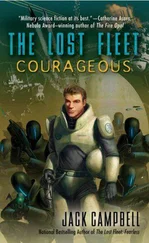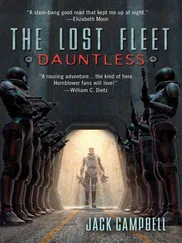“I’ll be there in fifteen, twenty tops.”
I often use college students for simple research or observation jobs. They’re good at blending into the background. I know because I was trained to be, and I recognize the talent. Gina’s a junior at NYU and one of the best—smart, quick, intuitive, tenacious. All attitude with a mouth attached, but she doesn’t have the two annoying habits that afflict three-quarters of America’s youth: ending every sentence as a question (I’m told that’s called “uptalk”) and injecting the word “like” into every third phrase she speaks, the San Fernando Valley’s most pronounced contribution to the culture. Fascism isn’t good for much, but a dictatorial approach to language has its merits. One of the few things the French and I agree on.
I leaned against the brick, but it was too hot. As I straightened, a Town Car parked down the block. A man got out and came in my direction. Same breed as the thugs at Ratko’s apartment building. My message had traveled fast. Did he know about Goncharov’s studio, or had he followed me?
He opened his coat to show the automatic in his waistband. “Let’s go,” he said. “We’re already late. Fucking traffic.”
“No good. Tell Lachko—”
“Get in the fucking car. Now!”
He had the gun halfway out when I said, “Okay. Quick call first.” Who knew how many men Lachko had here. I wanted to warn off Gina.
“No calls. In the car.”
He climbed into the Lincoln after me. Another side of Russian beef was behind the wheel. He smelled of sweat and tobacco in equal measure.
“Move,” the man said. The car took off, rattling as it accelerated on the cobblestones. I didn’t ask where we were going. At the corner, the driver turned east across the bricks of Grand Street toward Brighton Beach.
* * *
Don’t buy the house, buy the neighborhood—another Russian proverb. Exactly what Lachko Barsukov did.
Lachko owned a full square block in Brighton Beach. On two sides, he left the existing houses. The other two blocks he demolished and constructed a replica of the Beloselsky-Belozersky Palace, an enormous baroque-neoclassical pile of pink stone, gilded columns, and marble statuary that must have a hundred rooms. The original stands on Nevsky Prospekt, St. Petersburg’s main drag, a bigger-than-life billboard advertising excessive opulence and reminding us why the tsars had to go. The Badger’s reproduction was evidence that both the wealth and ostentation of the New Russians were on a scale with their predecessors’.
Two guards approached the car while it idled outside a massive iron gate. The driver put down the window, and one of them signaled someone somewhere. The gates swung open. The Lincoln pulled into a courtyard and parked to one side. It looked out of place next to a refurbished ZiL limousine, doubtless belonging once to a Politburo boss, a red Bentley, and a white stretch Hummer. Another two men approached as we got out of the car. One held a gun while the other patted me down. Then he pointed to a door across the courtyard.
Yet another man waited at the door and took me up a flight of marble stairs and down a long marble corridor to a reception room furnished entirely in Biedermeier. He knocked once on a paneled door, entered briefly, then stepped back. In I went. I wasn’t ready for the sight.
Lachko and I had once been close, as close as two men can be who don’t like each other. His father, Iakov, the man who had guided my early career in the Cheka, also welcomed me into his family. I loved him like the father I never knew and tried to love Lachko and his brother, Vasily, too, but affection doesn’t necessarily pass down generations. Iakov was the glue, and over time, Lachko and I moved apart, old planks separating with age and wear. Then events intervened, and whatever glue was left was burned—scorched would be more accurate. Ivanov said he was sick. Ivanov had a spy.
Lachko was about my size and build—or had been the last time I saw him. Disease had taken sixty or seventy pounds, and overfed muscles were now starved and atrophied. He was wearing a silk polo shirt, warm-up jacket, and track pants that probably cost more than one of Mulholland’s suits. They couldn’t disguise the devastation. His cheeks and lips, once plump and heavy, now pulled against the bone. Two enormous dark black eyebrows hung over what was left of the face, thunderclouds ready to erupt. The withdrawal of flesh made them all the more pronounced. The eyes beneath hadn’t changed—they were as cold and gray as ever. He had a plastic oxygen tube in his nostrils and a Belomorkanal smoking in his right hand.
The room was all white—walls, carpet, furniture, marble mantelpiece. The sole exceptions were a bright red lacquered desk and the pile of pillows on his white leather daybed—an array of red, green, and gold, too many to count. The effect was quite striking and very Russian, in its gaudy kind of way. We’ve never been known for subtlety.
“Greetings, Electrifikady Turbanevich, you shit-eating son of a whore fucked up the ass by her pederast father,” Lachko wheezed in Russian, smoke floating from his mouth. “I hope you don’t mind paying a visit to an old, sick friend.” He stopped to cough.
Russians excel at vocal vitriol. The language facilitates improbable, attention-grabbing slurs, and Lachko was well practiced at the verbal body slam. To respond was simply to invite more.
“Lachko, I am sorry. I heard about your illness. I hoped it wasn’t true.”
“Bullshit. You’d dance on my grave naked. These fucking doctors. They say I have cancer. They may be right. They say it can be treated, maybe. They may be right about that, too. They tell me to stop smoking. Fuck what they say. What can I offer you? Coffee, beer, vodka?”
“Nothing,” I said.
“Vodka, Sergei,” Lachko said to a large, well-built man in a silk suit and wraparound mirrored sunglasses. “Two glasses. You will drink with me, Electrifikady Turbanevich. We have not had many opportunities recently, and who knows how many we have left.”
I thought he was referring to his disease, but the grim grin on his withered lips told me to think again.
Lachko picked up a couple of cashews from the crystal bowl on the table beside the bed and dropped them, one by one, into his mouth. He chewed slowly. He’d eaten the nuts for years—in a small way, they were part of the reason for our rift. He used to smuggle them by the bushel, intended for a store serving the nomenklatura, the privileged class, but diverted to the Barsukov private stock.
“How long has it been, Turbo? Twenty years, twenty-five?”
“That’s how you wanted it.”
“That is correct. I still do. I had hoped to finish my days without ever setting sight on your piss-ugly face. Do you like my home?”
“Magnificent,” I lied. “I recognized it immediately, of course.”
“Of course.” The withered lips turned ever so slightly upward beneath the pointed nose, as close as Lachko ever came to a real smile.
He did not offer me a seat, so I remained standing. I didn’t try to make small talk or fill in the years. If he was interested, he’d know what I’ve been up to.
Sergei returned with a chilled bottle and two glasses. He poured Lachko’s first, then mine. Lachko held his up.
“ Za vashe zdorovye —to health, Electrifikady Turbanevich. Mine, that is. You can rot from your maggot-infested insides out for all I care.” He tossed back the drink. I skipped the return toast and took a sip. Lachko was watching my every move. The scrawny paw scooped up more nuts. He hacked twice, spat in a silver bucket on the floor and fired up another Belomorkanal.
Lachko chain-smoked a vicious brand of papirosa, an unfiltered Russian cigarette made by stuffing the cheapest possible tobacco into a cardboard tube. They were introduced in the 1930s to commemorate the completion of the Belomorsko-Baltiyskiy Kanal, the White Sea–Baltic Canal, which runs from St. Petersburg through a hundred and forty miles of rock to the White Sea. One of Stalin’s showpiece projects, built entirely by prison labor from the Gulag—170,000 laborers to be precise—using only handmade picks, shovels, wheelbarrows, and such. No machines. No explosives. No technology. Tens of thousands died of starvation, exposure, exhaustion, and illness. Of course, the cigarettes have killed many times more. The irony is, when it was completed, the canal was too shallow and too poorly constructed to be of much use. Still, it was completed, and therefore it needed to be commemorated.
Читать дальше
